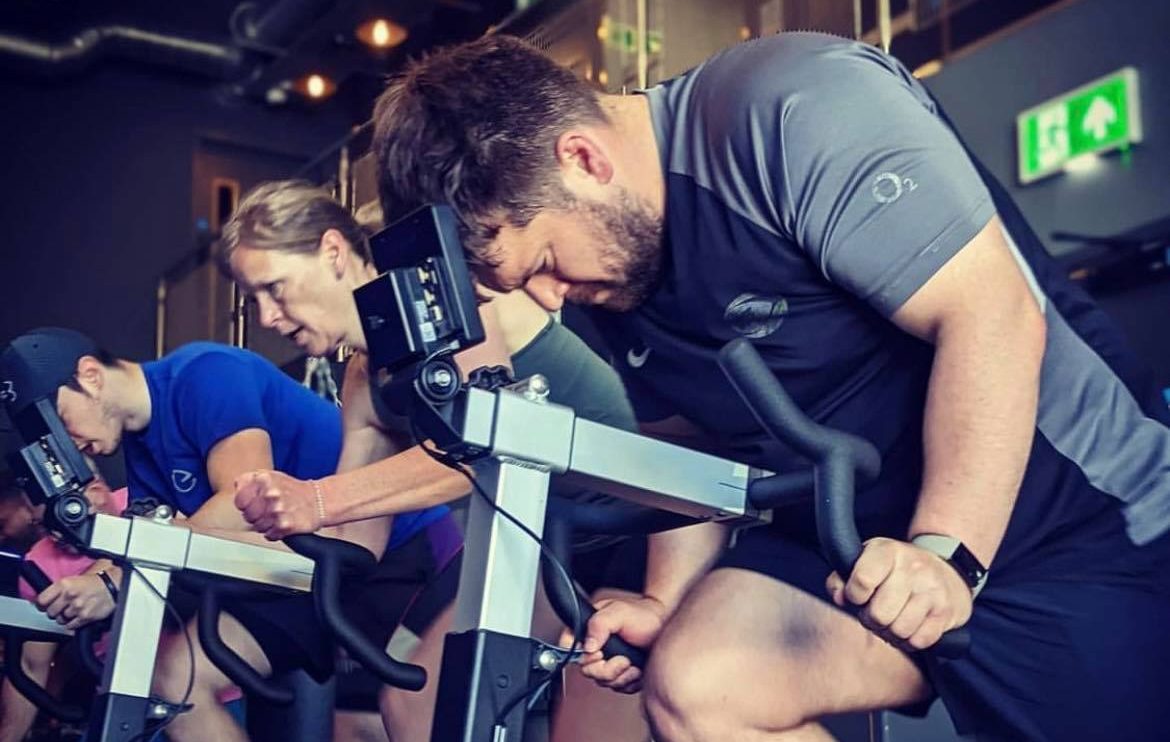This month we are taking a look at our diets to help you better understand your body and why you might not be seeing the results you were hoping for. This week we are exploring calories and hormones, two factors that play a huge impact on our body’s ability to shed those excess pounds.
Move more, eat less? Not so effective.
Building on last week’s post on energy balance, which you can read here: https://www.elevatefitnessuk.com/2021/12/01/your-energy-balance/ For the last half-century, our traditional weight loss advice has been to eat less and move more. Now with obesity at epidemic levels in many countries in the world, maybe just maybe this advice hasn’t been quite right?
It does seem simple to think of it as simply calories in and calories out to dictate our body’s composition. And to a point, this does dictate our physiological makeup but there are also more variables that have a higher weighting effect on our weight loss or weight gain and the body fat we hold on to.
There are numerous studies now that are proving that our old theories of a lower-calorie diet and increased exercise regime (eat less move more) are in fact not as effective as we once thought. Here’s a nice little example of why:
So when we decide to drop those extra few pounds before holiday we decide to reduce our intake by say 20%, at first we will start to see some reduction, you’ve dropped your intake by 20%, of course, you will. BUT, here’s where it slows down and stops. Your body doesn’t like being in a constant deficit, it’s hard work, as it needs to find more fuel from somewhere else. So rather than keep working harder to find that fuel it’ll take the easy route. What’s that? Simply it will reduce your Basal Metabolic Rate (BMR) by the reduced 20%. Now all your weight loss stops, you get frustrated and reduce again then the same cycle repeats.
Now yes every time you reduce you’ll see a step in the direction you’re after, but this way is unrealistic and doesn’t work in the long term as what are you going to do when you have nothing left to eat? So what’s the answer?
Your hormones play a role too.
Research is showing that it’s our hormones to be exact are having more of an impact on our ability to reduce our excess body fat and in particular insulin and cortisol.
We should have all heard of insulin, we probably know it as something diabetics have to take to help control their blood sugars. But did you know insulin is a naturally occurring hormone that everyone of us has. Insulin is a hormone that is released by the pancreas, which regulates the amount of glucose (sugar) in the blood. Insulin has also been coined as the fat-storing hormone and this all of a sudden makes perfect sense when you understand the difference between type 1 and type 2 diabetes.
Simply put type 1 is when insulin is not created by the body or if it does, it’s just in very limited amounts, this is why type 1 diabetics administer insulin directly to reduce and regulate the amount of sugar in their blood. Now, type 2 is when the body becomes resistant to the effects of the body’s insulin, not that they don’t have enough, if anything they have too much. This resistance is built up by overstimulation. Think of it this way, you’re sitting on your sofa and the doorbell goes, you get up and answer the door, your friend insulin is there with their friend glucose, so you let them in. You shut the door, sit down and the doorbell goes again, you get up, answer the door, again insulin is there with their friend glucose, again you let them in. If this is repeated over and over and over again eventually you would think sod that I’m not answering the bloody door anymore. And so insulin and glucose just start hanging around outside because you won’t let them in. And so they accumulate in higher and higher numbers.
This is exactly what happens in your body. And it’s not a coincidence, have you ever noticed that typically type 1 diabetics are usually thin people and type 2 diabetics are usually overweight. I know these are complete polar ends of the spectrum but each and every one of us will have differing sensitivity to our own regulatory hormones and this is just one example. Some people just find it easier to lose body fat and some people really struggle and it’s all down to our sensitivity to our own hormones.
Your inbuilt alarm system
Now on to cortisol. Cortisol is a stress hormone, it’s our inbuilt alarm system. Cortisol is released when we are under stress, whether physically or psychologically, it’s a key part of our fight-to-flight system. But our body can’t tell the difference between the cortisol released when we are stressing about an exam or between the cortisol released when we are getting chased by a bear!! Why?!? Because it’s the same cortisol, the body just detects the hormone and then goes into battle mode.
Now just think for a second, we are getting chased by a bear, do you think your body cares about anything but surviving? No of course not, all it wants to do is get away, it doesn’t care about any other regulatory hormone or bodily functions other than I need to get away from that bloody bear. This is why cortisol is playing another key role in the fight against obesity. We all have far too many stressors to deal with today and your body can’t tell the difference if it’s life-threatening or not, it just sees the threat.
Hopefully, this made sense to you and you can see why there is more to it than just the amount we eat.
What can you do about it?
But now comes the big question, all this is well and good but what can I do about it.
So let’s start with managing our cortisol levels. How about trying to manage your stress levels and anything you know that causes your blood to boil. This in itself is a post on its own but think about it sensibly. Remove as many stressors in our life as we can, if we can’t remove them, manage them better. Write stuff down, meditate, talk to people, seek help, it’s not rocket science. Optimise your exercise (stressor I know, but there are some stressors that can have a positive outcome), nutrition and sleep. Put that smartphone down, it’s not doing you any good.
Stop raising those blood sugars!
On to Insulin. hopefully, you’ve got an idea from when I was explaining that insulin is released to control blood sugars. So what raises blood sugars? The food we eat!! Eat loads of processed foods, high in sugars, carbohydrates and low in fibre and you’re asking for trouble. The consumerist world we live in where food is available 24/7, these are usually the foods that are our downfall.
Situation: Do I grab the ingredients and spend 10-20 minutes making my food or do I just grab that pre-made thing I can just shove straight in?!? You know the answer and this is why obesity has become an epidemic.
Eat plenty of vegetables and salads, packed full of all the good stuff, carbohydrates, fibre, vitamins and minerals. Add to it some form of protein, meat, fish or veggie option then finish it off with a good helping of healthy fats like extra virgin olive oil, nuts, seeds or avocado. It’s seriously that simple. But we obviously can’t see it as simple or we would all do it. We’ve all got lazy and out of the habit. What would your great, great, great, great grandparents do? They knew best. If you were able to prep and plan ahead and eat in this way you’ll be minimising the the impact on your insulin levels, both in acute and chronic durations.
Manage these two hormones by eating like our olds used to do and by reducing our stress levels and then you will give your body the opportunity to reduce its fat stores. But surely this comes back to the question that I need to be in a calorie deficit so I can lose weight? And the answer is Yes but at the same time No. Confused? Don’t worry I’ll explain all in a few weeks as I’ve written enough already for today. There I shall cover the best ways to help regulate your insulin and maximise your effectiveness toward optimising body fat reduction.
We are always here to support you with your fitness journey, whatever that might be. To find out more about our PT services then please feel free to get in touch, email info@elevatefitnessuk.com or book a class by tapping the link below:


